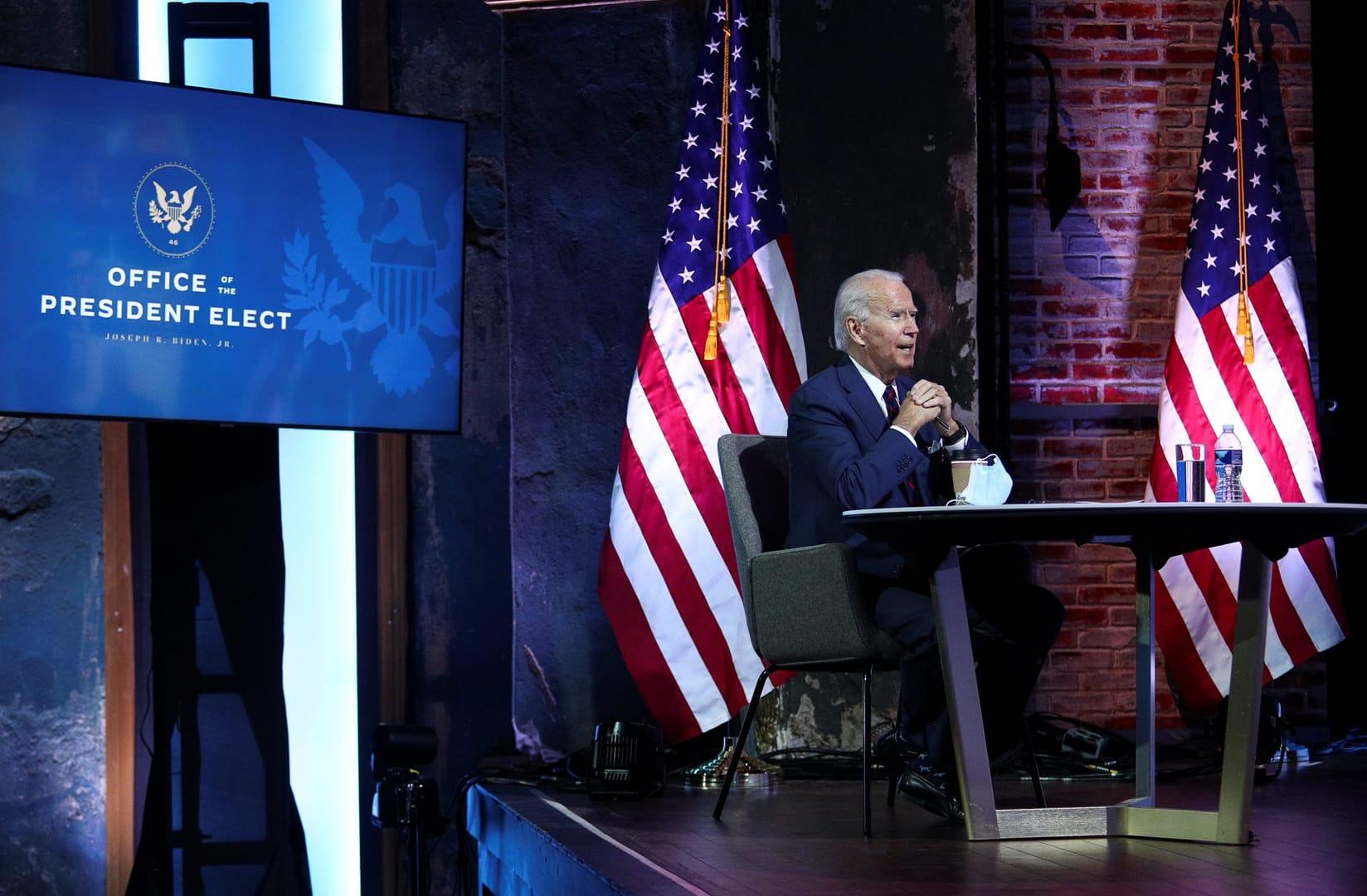NEW YORK — Archbishop José Gomez of Los Angeles took aim at president elect Joe Biden in comments Tuesday, calling it a “difficult and complex” situation that the second ever Catholic president-elect supports abortion rights.
“When politicians who profess the Catholic faith support them there are additional problems,” Gomez, the president of the United States Conference of Catholics Bishops said. “One of the things it creates is confusion with the faithful about what the church actually teaches.”
The remarks were part of an unscheduled five-minute address Gomez gave to close out the first ever virtual U.S. Bishops conference that took place Monday and Tuesday. He also announced Archbishop Allen Vigneron of Detroit will chair a new working group to help navigate the situation between the American Catholic church and president-elect.
Gomez spoke favorably about Biden’s policies on issues like immigration, racism, the death penalty and climate change. However, those were all superseded by his pro-abortion stance.
“These policies undermine our preeminent priority of the elimination of abortion. We have long opposed these policies and continue to do so,” Gomez said.
There was no mention of the election otherwise as the rest of the meeting stuck to the agenda.
The comments by Gomez bucked what looked like a smooth start between Biden and the Church since he won the election. Last week, Pope Francis spoke to Biden on the phone about working together on equality, climate change and immigration. A few days later he pledged to raise the refugee ceiling by 125,000 in an address to the Jesuit Refugee Service.
Meanwhile, most of Tuesday’s public session was about the COVID-19 pandemic and the issue of racism in the United States.
Bishop Shelton Fabre of Houma-Thibodaux, chair of the ad hoc committee against racism, reaffirmed the message in the 2018 USCCB pastoral letter Open Wide Our Hearts that declares racial justice a life issue.
Fabre also mentioned the impact of COVID-19 on communities of color.
“We could not have completely foretold the devastation or the disparate impact the coronavirus would have in communities of color. Nor could we have completely foretold how starkly obvious racial healthcare disparities have become during this pandemic,” he said.
Archbishop William Lori of Baltimore didn’t mince words about the importance of tough conversations about race in America.
“There’s a lot of people who think they don’t need to have such conversations because they don’t think they have a racist bone in their body,” Lori said. “The reality of course for all of us, myself included, is much different.”
“The goal here isn’t just to respond to a tumultuous year where there is unrest in the streets. The goal is to change in a fundamental way how the Archdiocese of Baltimore operates.”
Archbishop Alexander Sample of Portland in Oregon said every bishop should learn the history of the African American experience in their communities. He also wants the church to move away from certain slogans or movements and focus on its own social teaching.
“I think as a church we need to speak from our own tradition and we need to speak our Catholic social teaching strongly. If we can as a country just live by the principles of Catholic social teaching we wouldn’t have so many of the problems that we deal with,” he said.
Sample and Bishop Mark Seitz of El Paso brought up the importance of including Native Americans, Hispanics, Latinos and Asians in conversations about racism as well.
In the discussion about COVID-19 the desire of parishioners to worship was a common theme. While most bishops talked about that desire as a positive, Archbishop John Wester of Santa Fe acknowledged that it creates a challenge.
“There’s a real tension in our archdiocese. There’s a real anger,” Wester said. “I’m receiving a lot of difficult letters, people saying ‘you’re not the governor you’re our spiritual leader and we need the Eucharist. Don’t deprive us of the Eucharist.’”
Wester, and others like Bishop David Talley of Memphis emphasized the domestic church at home as the best way to worship. Some bishops also spoke about the generosity of parishioners to volunteer at a time when they face COVID-19 restrictions and financial hardship.
Cardinal Seán O’Malley of Boston spoke about the 30 priests from the archdiocese that go to nursing homes and hospitals to visit the sick. Thanks to protective equipment and special training, none of them have contracted the virus.
Follow John Lavenburg on Twitter: @johnlavenburg















